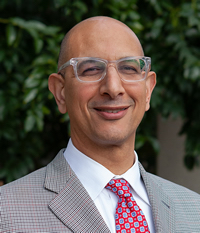CalAIM, which went into effect on Jan. 1, will provide comprehensive SUD care that could serve as a model for the rest of the nation
By Jason Langendorf
Substance use disorder (SUD) treatment services in California are now a permanent component of Medi-Cal, the state’s Medicaid managed care system, after the California Department of Health Care Services (DHCS) received federal approval to expand and enhance the program.
The California Advancing and Innovating Medi-Cal (CalAIM) proposal, which was given the go-ahead by the federal Centers for Medicare & Medicaid Services (CMS) late last month, went into effect on Jan. 1. The stated goal of the initiative—to “make Medi-Cal more equitable, coordinated and person-centered to help people maximize their health and life trajectory”—included integrating SUD treatment services into a more comprehensive continuum of care.
“We’re making Medi-Cal, which provides health care to one-third of all Californians, the most comprehensive, robust such program in the entire country.”
—California governor Gavin Newsom
“We’re making Medi-Cal, which provides health care to one-third of all Californians, the most comprehensive, robust such program in the entire country,” California governor Gavin Newsom said in a statement. “Today’s announcement continues California’s leadership in providing better health care to more people.”
A Bold Approach Toward SUD

The approved initiatives build on successful pilot programs, with the goal of scaling and streamlining innovations statewide. Those include contingency management, an evidence-based modality proven helpful in reducing the use of stimulants (for which no FDA-approved medication-assisted treatment currently exists); peer support specialists, who can promote recovery and help patients avoid substance-use recurrence; and, in some cases, short-term residential treatment.
Among other steps the state has taken to improve access to mental health and SUD services for Medi-Cal-covered Californians:
- Establishing a “no wrong door” approach for enrollees to quickly and easily access mental health and substance use disorder services, regardless of the delivery system where they initially seek care. Statewide screening and transition tools are standardized and barriers to care are reduced by streamlining criteria for accessing services.
- Offering intensive, community-based care coordination for enrollees living with serious mental illness, substance use disorder or serious emotional disturbance through enhanced care management.
- Providing community supports (e.g., housing supports, sober centers) if offered by the enrollee’s managed care plan.
- Modernizing reimbursement for providers to incentivize outcomes and quality over volume and cost.
- Funding development of critical infrastructure to expand the continuum of behavioral health services in the community (e.g., mobile crisis, wellness centers, residential, acute psychiatric care).
“CalAIM reflects California’s commitment to a healthier and more equitable state and will be a model of transformation for the entire health care system,” said California Health & Human Services Agency secretary Mark Ghaly, MD. “CalAIM shifts Medi-Cal to a population health approach that prioritizes prevention and addresses social drivers of health to better serve communities, many of whom historically have been under-resourced and faced structural racism in health care.”
Top photo: Antonio Gabola














